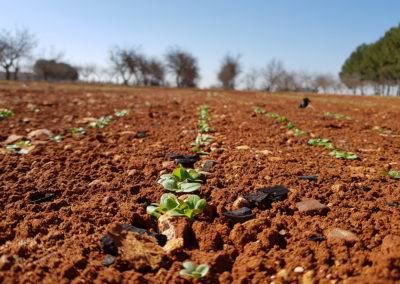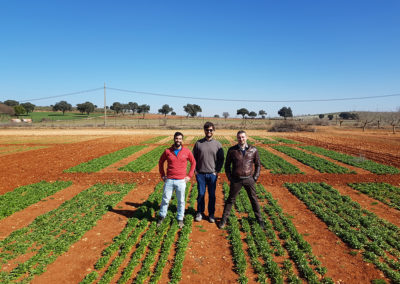In February 2019, experts of two BIO4A partners, Re-Cord (Italy) and Camelina Company (Spain), made a joint visit to the experimental fields located in two national and regional agronomic research centres: one in Madrid and the other in Ciudad Real (Spain).
In both sites, the experiments designed within the BIO4A framework aim at studying the agronomic effects of biochar (a form of charcoal produced by exposing organic matter to heat in a low-oxygen environment) and co-composted digestate and biochar (COM-BI) application on Camelina sativa cultivation and yield. COM-BI (which stands for Compost and Biochar) has been produced by Re-Cord in Italy since the beginning of BIO4A project, in May 2018, and has been sent to Camelina Company in Spain for being applied on Camelina experimental fields.
The aim is to use COM-BI on representative European Mediterranean marginal lands, a context facing increasing water scarcity and desertification risks. The ability of soil to sequester carbon and hold water are currently under monitoring.
The experiments, started in November 2018, consist on applying 3 different rates of biochar in COM-BI, compost and inorganic fertilizer on micro-plots with 4 repetitions each.
The interest on such experiments is high, since they are conducted in a context of business-as-usual agronomic operations. Once results will be collected, partners expect to draw useful conclusions for their replicability at a larger scale.
During the field visit, Re-Cord and Camelina exchanged practical information on first lessons learned on COM-BI production and field application.
Follow BIO4A activities and stay tuned for knowing first agronomic results, shading the light on one of the project scopes: how to successfully recover European marginal lands for drought resistant crop production.


